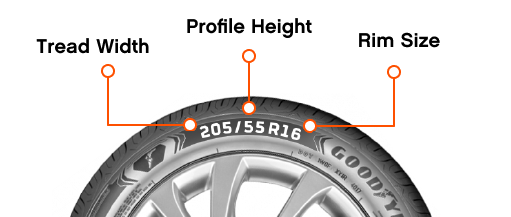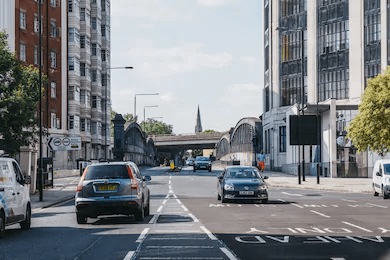Complete 3 steps to buy & book online


The price of fuel is increasing all the time, which means we’re always looking for ways to cut down on how much fuel we use. But it’s not only a good move for the hip pocket - reducing your vehicle’s fuel consumption is also better for the planet, reducing the amount of CO2 emitted by your vehicle.
There are a number of ways to reduce your vehicle’s fuel consumption, from choosing fuel-efficient or eco-friendly tyres, to making sure you’re driving in the most economical way possible.
How to improve your vehicle’s fuel economy
Rolling resistance accounts for 20 to 30% of your vehicle’s fuel consumption, of which your tyres play a large role - by choosing the right tyres, and keeping them in good condition, you’ll save fuel and money. The harder your tyres have to work, the more fuel they’ll use.
1. Choose fuel-efficient tyres
Most tyre manufacturers offer fuel-efficient tyres. They are designed to have a lower ‘rolling resistance’, which means they need less force and less energy to keep them rolling on the road’s surface. Fuel efficient tyres are specially engineered with a lower tyre resistance, meaning they need less fuel to keep moving. Low rolling resistance tyres can lower your fuel consumption by as much as 5% compared to conventional tyres. Often low rolling resistance tyres incorporate recycled materials, making them even more eco-friendly.
2. Check your tyre air pressure
If your tyres are underinflated, they’ll need to work much harder to keep your vehicle moving - this can cause your vehicle to use a lot more fuel than it otherwise would. Make sure to check the air pressure of your tyres regularly and to inflate or deflate where necessary. You can do this at any service station.
3. Monitor your tyres for uneven wear
As your tyres drive along the road, they begin to wear. For various reasons including driving style, road conditions or poor wheel alignment, they may wear unevenly. Uneven wear can increase the rolling resistance of your tyres, meaning they need more energy and more fuel to accelerate or stop. Make sure to check the wear patterns on your tyres to diagnose and correct any potential problems. Regularly rotating your tyres and checking wheel alignment will also ensure they wear more evenly.
4. Practice good driving habits
Driving too fast, accelerating too quickly or braking too suddenly leads to higher fuel consumption. When you do this, your engine has to work harder, using up more fuel. Always try to accelerate and brake slowly, and maintain a steady speed that’s within the legal limits. Increasing the following distance between you and other cars can help you to read the traffic and be smoother on the brake and accelerator. Consider using your cruise control whenever you can to maintain a steady speed.
Need help?
Our team of tyre experts is ready to assist you in finding the perfect tyres for your vehicle. Give us a call today at 13 23 81 to receive personalised guidance and recommendations.
Alternatively, you can visit our website to locate the nearest store and explore our wide range of tyres




